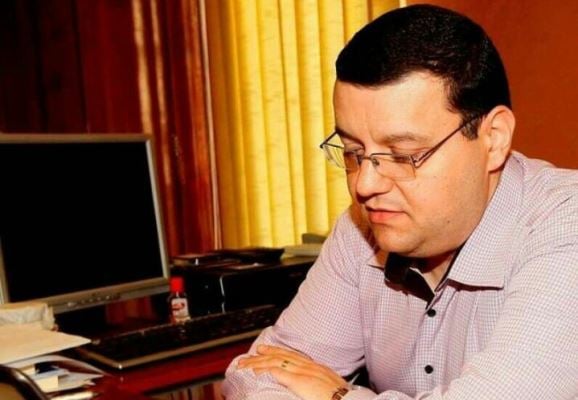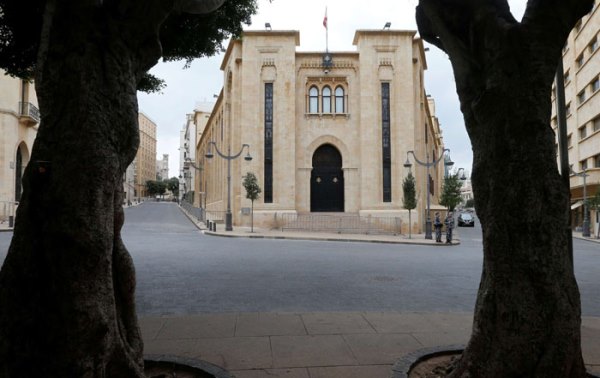Uncertainty shrouds Lebanon’s parliamentary elections
Rami Rayess / The Arab Weekly
10 أكتوبر 2017

The date for Lebanon’s parliamentary elections has again been cast into doubt, worrying civil society organisations and angering opposition figures.
After years of democratic stagnation and the execrable delivery of public services, the sweeping revisions introduced by Lebanon’s adoption of proportional representation earlier this year promised smaller parties and civil society a clear voice within Lebanon’s assembly. However, as the date for the elections again becomes uncertain, disquiet is rising along the Lebanese street.
Lebanon has had a peculiar history with its parliamentary elections. Intended for every four years, the most recent election was in June 2009. Since then, the parliament has extended its mandate three times, a procedure that had only been undertaken during the country’s protracted civil war when no ballot was carried out from 1972-92.
Until the current term, elections have been regular ever since. Following that of 2009, a curious balance emerged between Lebanon’s two dominant parliamentary blocs, the March 8 and March 14 groups. Both achieved positions of power in 2005, both gained a reasonable share of the vote but neither scored a sweeping majority.
The legislative stalemate comes with advantages and disadvantages. On the one hand, neither group has amassed enough power to lead the country on any dramatic or potentially divisive political crusade. However, both have used their effective veto to stymie progress and block any significant legislative advance.

For evidence of parliamentary inertia, we only need to look to the two years the country went without a president or the fevered deal making that preceded the adoption of a new electoral law only hours before the expiration of the present parliament’s mandate. Had this not happened, Lebanon would have probably descended into constitutional chaos. The adoption of the new law paved the way for extending the legislature’s term until May 2018, allowing time for the logistical preparations for elections under the new electoral law.
However, parliament Speaker Nabih Berri surprised the Lebanese political community when he proposed shortening the current parliament’s term until December 31, 2017. It was a move few were expecting. Initial reaction came from the prime minister, who, perhaps grateful for the lifeline extended to his current cabinet by the initial extension, commented that bringing elections forward risked endangering what progress had been made so far.
Prior to the speaker’s intervention, Lebanon had been gripped by rumours of the elections being either postponed or cancelled. Irrespective of what foundation the rumours may have been based upon, the consensus on the Lebanese street was that the much-anticipated elections were under threat.
Uncertainty over Lebanon’s elections has exacerbated ingrained public distrust in a political establishment that has shown itself incapable of respecting the constitution or delivering on its own deadlines for parliamentary and presidential elections. Deteriorating public services, an ailing economy, endemic corruption and the increasing discussion of deals that will only serve to benefit select political personalities have all widened the gulf between Lebanon’s political establishment and the public it is intended to serve.
For civil society and Lebanon’s emerging political parties, the upcoming battle is critical. Under the new system of proportional representation, this is their opportunity to break into an atrophied political system dominated by eight grand parliamentary blocs, charged with the power to either pass or block any item of legislation they choose to. That not all exploit this deadlock equally is beside the point. That all are united by a failure whose cost continues to be borne daily by the Lebanese public is.
 عن أمل جنبلاط المتجدد: لبنان يستحق النضال
عن أمل جنبلاط المتجدد: لبنان يستحق النضال
 صحافيون أم عرّافون!
صحافيون أم عرّافون!
 ماذا يجري داخل أروقة بيت الكتائب المركزي؟
ماذا يجري داخل أروقة بيت الكتائب المركزي؟


 عن الخرائط التي تُرسم والإتفاقات التي تتساقط!
عن الخرائط التي تُرسم والإتفاقات التي تتساقط!
 “الإنحراف في الحياة”/ بقلم كمال جنبلاط
“الإنحراف في الحياة”/ بقلم كمال جنبلاط
 هاشتاغ #صار_الوقت يحل أولاً في حلقة جنبلاط
هاشتاغ #صار_الوقت يحل أولاً في حلقة جنبلاط
 طاولة نقاش عن أزمة الصحافة في جامعة AUST
طاولة نقاش عن أزمة الصحافة في جامعة AUST
 عبدالله: ليظهر لنا وزير مكافحة الفساد حرصه في صفقات البواخر والفيول
عبدالله: ليظهر لنا وزير مكافحة الفساد حرصه في صفقات البواخر والفيول
 عبدالله: غريب أمر وزارة مكافحة الفساد!
عبدالله: غريب أمر وزارة مكافحة الفساد!

 Comment to Uri Avnery: How Sad What Is Looming Ahead
Comment to Uri Avnery: How Sad What Is Looming Ahead
 “Not Enough!”
“Not Enough!”
 … لمن لم يقرأ يوسف البعيني/ بقلم وسام شيّا
… لمن لم يقرأ يوسف البعيني/ بقلم وسام شيّا
 كمال جنبلاط في مولده الأول بعد المائة: تعاليمه وأفكاره ما زالت الحلّ/بقلم عزيز المتني
كمال جنبلاط في مولده الأول بعد المائة: تعاليمه وأفكاره ما زالت الحلّ/بقلم عزيز المتني
 رئيس حزب/ وليس (… سابقاً)/ بقلم د. خليل احمد خليل
رئيس حزب/ وليس (… سابقاً)/ بقلم د. خليل احمد خليل
 التوازن السياسي في لبنان
التوازن السياسي في لبنان
 لبنان… مشاريع انقلابية مؤجلة
لبنان… مشاريع انقلابية مؤجلة
 جنبلاط وحَمَلة أختام الكاوتشوك
جنبلاط وحَمَلة أختام الكاوتشوك
 Le Liban est un symbole de tolérance
Le Liban est un symbole de tolérance
 Our Automated Future
Our Automated Future
 The True Origins of ISIS
The True Origins of ISIS
 Les Misérables vs. Macron
Les Misérables vs. Macron
 عذراً أيها المعلم/ بقلم مهج شعبان
عذراً أيها المعلم/ بقلم مهج شعبان
 رساله الى المعلم / بقلم ابو عاصم
رساله الى المعلم / بقلم ابو عاصم
 إلى روح القائد والمعلم كمال جنبلاط/ بقلم أنور الدبيسي
إلى روح القائد والمعلم كمال جنبلاط/ بقلم أنور الدبيسي
 أسرار وعناوين الصحف ليوم الجمعة 14 كانون الاول 2018
أسرار وعناوين الصحف ليوم الجمعة 14 كانون الاول 2018














